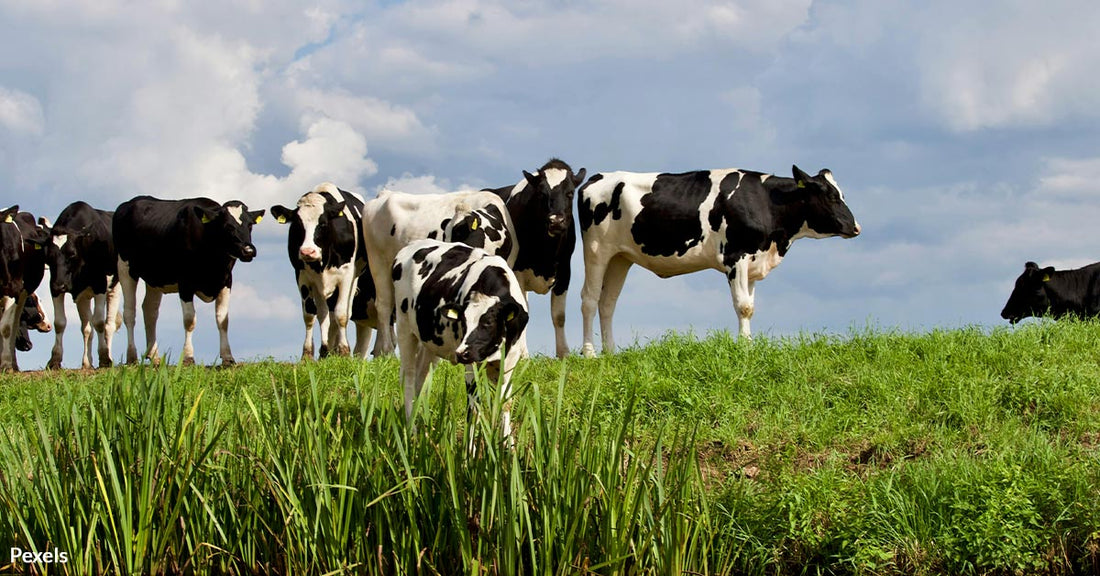Moo-ve Over Men: Cows Prefer Women's Company, Study Finds
Matthew Russell
In the burgeoning field of animal-assisted therapy, cows have quietly emerged as unlikely yet effective companions.
A recent study reveals that cows show a marked preference for women over men during therapeutic interactions.
This discovery highlights intriguing gender dynamics in animal therapy and opens new avenues for bovine-assisted therapeutic practices.

Unique Therapeutic Companions
Cows are not the first animals that come to mind when considering therapy options. Typically, therapy animals include dogs, cats, and even miniature horses. However, cows possess unique behavioral traits that make them suitable for therapeutic interactions.
The study involved two castrated male Holstein bulls, Magnus and Callum, and 11 human participants, ranging in age from 13 to 79 years, reports the Daily Mail. The participants, including five women, five men, and one young girl, engaged in 45-minute sessions with the bulls, involving activities such as grooming, petting, and feeding.

Gender Dynamics in Animal-Assisted Therapy
The study's results were striking. The bulls demonstrated a clear preference for interacting with women. They were more likely to initiate contact, such as licking and smelling, with female participants. Women, in turn, reported stronger attachment behaviors and a greater sense of comfort during the interactions, Science Daily reports. This finding suggests that gender may play a significant role in the effectiveness of certain animal-assisted therapies.
Dr. Katherine Compitus, Clinical Assistant Professor at New York University, and Dr. Sonya Bierbower, Associate Professor at the United States Military Academy West Point, led the research. They utilized the Human-Animal Interaction Scale (HAIS), a 24-item self-report instrument, to measure and quantify the behaviors exhibited by both humans and cows during their interactions, Phys.org reports. This rigorous methodology ensured that the study's findings were robust and reliable.

Behavioral Traits of Therapeutic Cows
Cows' social nature as herd animals likely contributes to their suitability as therapy animals. They thrive in social environments and display behaviors that facilitate bonding with humans. For instance, cows engage in social grooming, which includes licking and nuzzling, behaviors that were frequently observed during the study sessions, according to The Star.
The bulls' willingness to accept food, tolerate physical interaction, and initiate contact underscores their potential as therapeutic partners.
The participants' feedback further supported these findings, reports the Daily Mail. Many women reported a deep sense of connection with the bulls, with one participant noting that she initially feared aggression but ended up "falling in love with cows" after the session. Such positive experiences reinforce the potential benefits of including cows in animal-assisted therapy programs.
 Photo: Pexels
Photo: Pexels
Therapeutic Benefits for Humans and Cows
The study also highlighted the reciprocal nature of bovine-assisted therapy. Dr. Compitus emphasized that the cows themselves appeared to benefit from these interactions. According to Phys.org, the bulls' proximity to humans and their continuous engagement indicated a positive experience for the animals as well. This mutual enrichment suggests that bovine-assisted therapy could be a valuable addition to the repertoire of therapeutic practices, benefiting both humans and animals.
Despite the promising results, the researchers acknowledge the need for further studies to fully understand the mechanisms behind these interactions. Questions remain about whether the cows' preference for women is due to inherent gender-based behaviors or differences in how men and women initiate and maintain interactions with the animals.
 Photo: Pexels
Photo: Pexels
Implications and Future Research
The findings of this study open exciting possibilities for expanding animal-assisted therapy programs. Incorporating cows could provide a unique therapeutic experience that leverages the animals' social and nurturing behaviors, The Star reports. However, more research is needed to explore the long-term benefits and potential limitations of bovine-assisted therapy.
Cows, with their unique behavioral traits, offer a promising addition to therapeutic practices, particularly for women. As research in this field continues to evolve, it holds the potential to enhance our understanding of human-animal interactions and improve therapeutic outcomes for a wide range of individuals.

